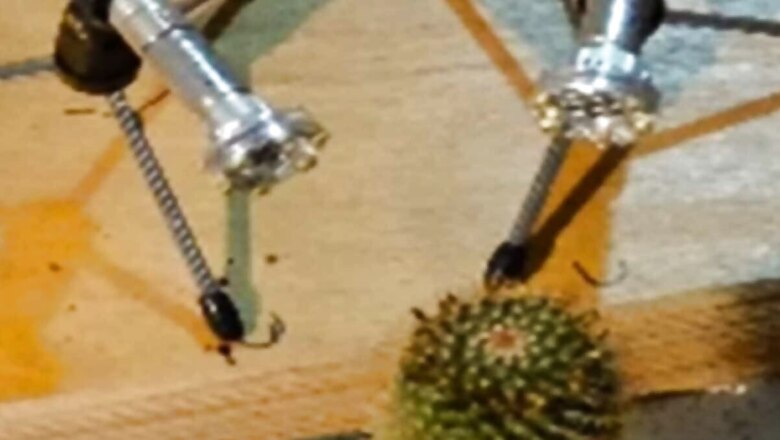
views
Plants have feelings, and there is now evidence that they become emotional when wounded or stressed. Yes, you read that right! Scientists have recorded the sound of plants “screaming" as they are harvested or uprooted. The sound is not the same as what humans make; it is a popping or clicking noise in ultrasonic frequencies that are beyond human hearing range. The researchers from Tel Aviv University in Israel noted in a report published in Cell that the sound increases when the plant is stressed. The report also suggested that this could be one of the ways plants express their discomfort to the world around them.
“Even in a quiet field, there are actually sounds that we don’t hear, and those sounds carry information. There are animals that can hear these sounds, so there is the possibility that a lot of acoustic interaction is occurring," Lilach Hadany, an evolutionary scientist at the institution, spoke with ScienceDirect about the 2023 study.
“Plants interact with insects and other animals all the time, and many of these organisms use sound for communication, so it would be very suboptimal for plants to not use sound at all," Lilach Hadany further said.
Check the video here:
When plants are stressed, they go through tremendous changes, one of which is the release of intense scents. They can also change colour and shape. However, Lilach Hadany and her team sought to know if plants could make noises.
To find out, scientists studied tomato and tobacco plants in both stressed and unstressed settings. Plants with their stems clipped or that were dehydrated were considered worried by them. The researchers then developed a machine learning system to distinguish between the sounds made by unstressed plants, cut plants, and dehydrated plants.
According to the Science Alert report, the team discovered that the sound of a disturbed plant was far too high-pitched for humans to hear and detectable within a radius of more than a metre. However, it is still unclear how the plants make the noises.
Stressed plants, on the other hand, make far more noise, generating up to 40 clicks per hour on average, depending on the species. Plants that are deprived of water produce a distinct sound. They begin clicking more before the plant shows visible signs of dehydration, increasing as the plant becomes more parched, and then decreasing as the plant withers away.














Comments
0 comment